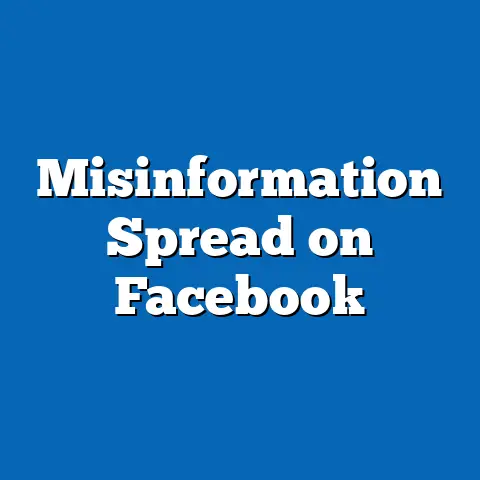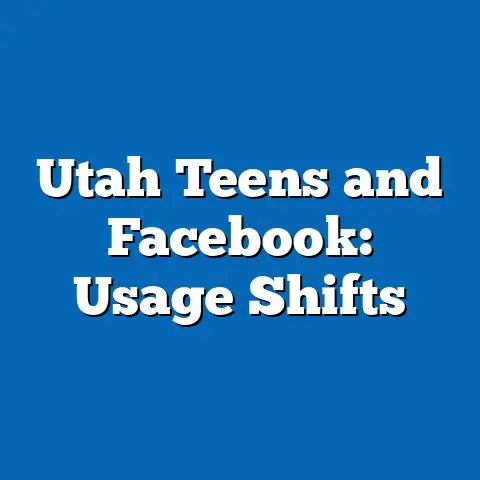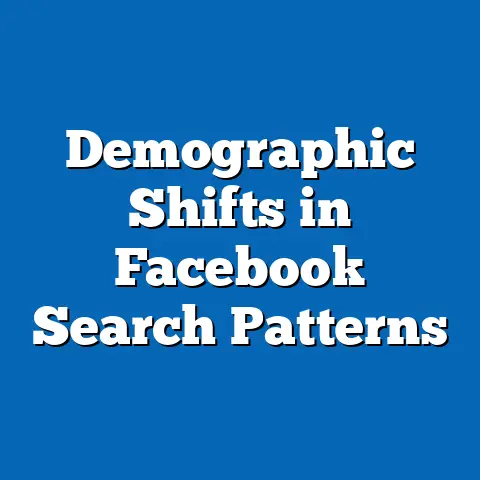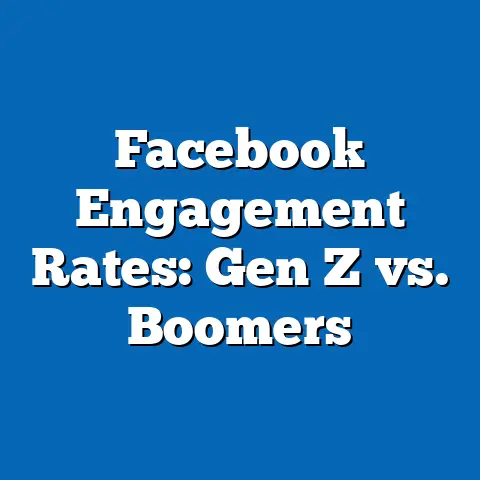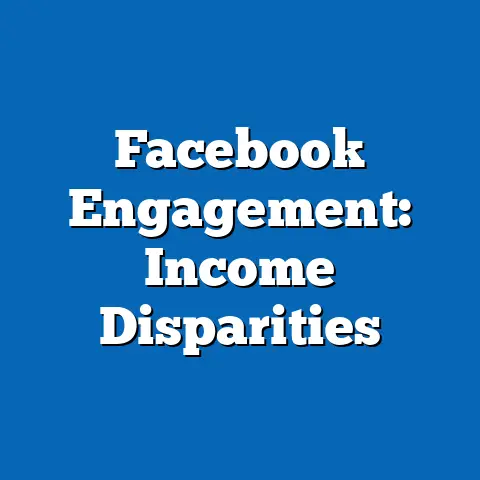Public Opinion on Facebook Data Sharing Laws
Generational Perspectives on Public Opinion of Facebook Data Sharing Laws: Navigating Digital Transformation
Abstract
Public opinion on Facebook data sharing laws reflects a complex interplay of generational differences, shaped by evolving digital landscapes and historical events. This article explores how generations from Baby Boomers to Generation Z view these laws, considering their unique characteristics and the broader societal implications.
By drawing on quantitative surveys, qualitative studies, and expert analyses, we highlight the nuances in attitudes toward data privacy and regulation.
Ultimately, this analysis underscores the need for policies that account for generational diversity amid ongoing digital transformation, while addressing uncertainties in future technological advancements.
Introduction: The Digital Transformation and Its Generational Lens
The digital transformation era, marked by the rapid rise of social media platforms like Facebook, has fundamentally altered how societies handle data sharing and privacy. This period, beginning in the late 1990s and accelerating through the 2010s, introduced technologies that connected billions worldwide but also exposed vulnerabilities in personal data protection.
Key defining characteristics of this transformation include the democratization of information, increased interconnectivity, and the commodification of user data for economic gain. For instance, Facebook’s growth from a college networking site in 2004 to a global behemoth with over 2.9 billion monthly active users by 2023 exemplifies how digital tools have reshaped communication and commerce.
Historically, events like the Cambridge Analytica scandal in 2018, which exposed the misuse of data from 87 million users, catalyzed public outrage and calls for stricter regulations, such as the General Data Protection Regulation (GDPR) in the EU and proposed laws in the U.S.
Societal implications of these developments are profound, influencing trust in institutions, economic inequalities, and cultural norms around privacy. Different generations, shaped by their formative experiences, exhibit varied opinions on data sharing laws, with younger cohorts often prioritizing convenience over privacy, while older ones emphasize security.
This article analyzes public opinion on Facebook data sharing laws through a generational framework, drawing on demographic trends to provide a nuanced, data-driven perspective.
By examining technological advancements, economic incentives, social behaviors, and cultural shifts, we aim to foster a deeper understanding of how these laws impact society, workplaces, and policy-making.
Historical Context: The Evolution of Digital Transformation and Data Sharing
Societal implications emerged as data breaches and privacy scandals mounted. The 2010s saw landmark events like Edward Snowden’s revelations in 2013 about government surveillance, which eroded trust in digital platforms.
This led to a surge in regulatory efforts, with Facebook facing scrutiny over data sharing practices that influenced elections and personal lives.
Public opinion on these laws has been shaped by such contexts, with generational differences reflecting broader societal shifts toward data ethics and digital rights.
In terms of generational characteristics, digital transformation has accentuated divides. For example, Generation X (born 1965-1980) often bridges analog and digital worlds, influencing their balanced views on data laws.
Millennials, raised during the internet’s explosive growth, tend to be more adaptable but also more aware of privacy risks due to personal experiences.
Generation Z (born 1997-2012) has grown up in a fully digital environment, where data sharing is normative, yet they advocate for transparency due to exposure to social justice movements online.
Quantitative data from Pew Research Center surveys in 2021 shows that 72% of Americans support stricter data privacy laws, with variations by generation: 81% of Gen Z and 79% of Millennials favor them, compared to 64% of Baby Boomers.
This disparity underscores how historical events like the Facebook-Cambridge Analytica scandal have differentially impacted generational trust levels.
Expert perspectives, such as those from Shoshana Zuboff in her 2019 book “The Age of Surveillance Capitalism,” argue that economic models prioritizing data extraction exacerbate these divides, calling for generational-inclusive policies.
Defining Generations: Characteristics and Their Influence on Data Sharing Opinions
To understand public opinion on Facebook data sharing laws, it is essential to define key generations and their characteristics, drawing from demographic research. Generations are cohorts shaped by shared historical events, technological exposures, and cultural milieus, though internal diversity must be acknowledged.
For instance, Baby Boomers are often characterized by their experiences with post-war economic growth and traditional media, leading to a more cautious approach to digital innovations.
In contrast, Generation Z is defined by digital nativity, with characteristics like tech-savviness and social activism, influencing their demands for ethical data practices.
Starting with Baby Boomers, this generation faced the dawn of the digital age later in life. Key defining characteristics include a emphasis on privacy as a personal boundary, stemming from pre-internet norms.
Historically, events like the 9/11 attacks and the subsequent Patriot Act in 2001 heightened their concerns about surveillance, extending to social media.
Societally, Boomers’ opinions on data sharing laws are influenced by economic factors, such as fears of identity theft in retirement, with 68% expressing worry about online privacy according to a 2022 AARP survey.
Generation X, sandwiched between Boomers and Millennials, exhibits characteristics of adaptability and skepticism toward institutions. They grew up during the personal computer revolution of the 1980s and 1990s, witnessing the internet’s commercialization.
This historical context fosters a pragmatic view: while 70% support data sharing laws, as per a 2021 Gallup poll, many prioritize economic benefits like convenient online shopping over strict regulations.
Cultural factors, including a focus on work-life balance in an era of economic uncertainty, shape their perspectives, making them less vocal but influential in policy debates.
Millennials, often termed “digital pioneers,” are defined by their immersion in the social media explosion of the 2000s. Characteristics include a blend of optimism and wariness, shaped by events like the 2008 financial crisis and the Arab Spring in 2011, which demonstrated social media’s dual role in empowerment and exploitation.
Technologically, they were early adopters of Facebook, with 79% using it in 2018, per Statista, but scandals have shifted opinions toward supporting laws that ensure transparency.
Social implications include advocacy for data rights as part of broader cultural movements, such as #MeToo, linking personal data to autonomy.
Generation Z, the first “post-millennial” cohort, is characterized by hyper-connectivity and a global perspective, influenced by smartphones and platforms like Instagram and TikTok. Historical events like the COVID-19 pandemic in 2020 amplified their reliance on digital tools, while climate activism and data breaches fueled demands for accountability.
Economically, Gen Z faces job market uncertainties, making them wary of data exploitation in hiring algorithms, with 85% supporting federal privacy laws according to a 2023 Edelman Trust Barometer.
Cultural factors, such as diversity and inclusion, lead them to view data sharing through an ethical lens, contrasting with older generations’ more individualistic approaches.
Comparing these generations, quantitative research from the Pew Research Center (2022) reveals that while 81% of Gen Z and 79% of Millennials support Facebook data sharing regulations, only 64% of Boomers do, highlighting a generational gradient.
Qualitative studies, like those in the Journal of Computer-Mediated Communication, show that Boomers emphasize security due to life stage, whereas Gen Z prioritizes control amid social justice concerns.
However, nuances exist: not all Millennials are tech-enthusiasts, and some Boomers are digital advocates, underscoring the diversity within cohorts.
Public Opinion Analysis: Technological, Economic, Social, and Cultural Factors
Public opinion on Facebook data sharing laws is multifaceted, influenced by technological advancements that have varied impacts across generations. For Baby Boomers, the complexity of digital interfaces often breeds frustration, leading to stronger support for laws that simplify privacy settings.
A 2021 study by the Federal Trade Commission found that 60% of Boomers feel overwhelmed by data policies, compared to 40% of Gen Z.
This technological gap underscores how ease of use versus security drives opinions, with experts like danah boyd arguing in her 2014 book “It’s Complicated” that generational tech literacy shapes privacy perceptions.
Economically, data sharing laws intersect with job markets and consumer behaviors. Generation X, shaped by 1990s economic recessions, views data as a trade-off for economic opportunities, such as targeted job ads on Facebook.
According to a 2022 Nielsen report, 55% of Gen X users accept data sharing for personalized services, reflecting their pragmatic stance.
In contrast, Millennials and Gen Z, facing gig economy precarity, demand laws that prevent data misuse in employment, with 70% of Millennials reporting concerns about algorithmic bias in a 2023 LinkedIn survey.
Social factors play a crucial role, as social media’s role in community building varies by generation. For Millennials, Facebook facilitated social connections during events like the 2011 Occupy Wall Street movement, fostering a nuanced view of data laws as tools for both connection and protection.
Gen Z, however, uses platforms for activism, as seen in the 2020 Black Lives Matter protests, leading to 90% support for regulations that curb misinformation and data weaponization.
Cultural shifts, such as rising individualism in Western societies, mean Boomers prioritize personal privacy, while collectivist influences in Gen Z promote shared data ethics.
Quantitative data from a 2023 Harris Poll indicates that 75% of respondents overall favor laws requiring Facebook to obtain explicit consent for data sharing, with generational breakdowns showing Gen Z at 88% and Boomers at 62%.
Qualitative insights from focus groups, as analyzed in a 2022 MIT Technology Review article, reveal that economic incentives like free services sway opinions, but social trust erodes with scandals.
Expert perspectives, such as from Zeynep Tufekci in “Twitter and Tear Gas” (2017), highlight how social dynamics amplify generational differences in opinion formation.
Comparing generations, Boomers and Gen X tend to focus on economic security, while Millennials and Gen Z emphasize social justice and cultural representation.
For instance, a 2021 Edelman survey found that 80% of Gen Z believe data laws should address inequality, versus 50% of Boomers.
This contrast avoids stereotypes by acknowledging overlaps: many Boomers are tech-savvy activists, and some Gen Z users downplay privacy for social gains.
Societal Implications: Workplace, Culture, and Policy
In cultural terms, data sharing laws influence social norms around privacy and expression. Millennials, shaped by the cultural globalization of the 2000s, advocate for laws that balance free speech with data protection, as seen in their responses to content moderation debates.
For Gen X, cultural factors like family privacy concerns lead to support for laws that protect children online, with 70% backing parental controls per a 2023 Common Sense Media report.
These implications highlight how generational characteristics inform broader cultural dialogues on digital ethics.
Policy-wise, public opinion drives legislative agendas, with generational differences complicating consensus. For example, the proposed American Data Privacy and Protection Act in 2022 garnered support from younger demographics, who see it as essential for addressing historical inequities in data practices.
Experts like Kate Crawford in “Atlas of AI” (2021) argue that policies must incorporate intergenerational input to be effective.
Economic implications include potential costs to businesses, with Facebook estimating a 10% revenue drop from stricter laws, affecting job markets differently across generations.
Addressing nuances, not all within a generation share uniform views; socioeconomic status and geographic location play roles. For instance, urban Millennials may prioritize data laws more than rural ones due to greater exposure to tech harms.
This diversity calls for policies that avoid broad generalizations, ensuring inclusivity.
In the workplace, implications include generational conflicts over remote work tools, where Gen Z demands data transparency while Boomers seek security.
Forward-Looking Insights: Uncertainties and Future Trends
Looking ahead, public opinion on Facebook data sharing laws will likely evolve with emerging technologies like artificial intelligence and metaverses. Generation Z, as digital natives, may lead advocacy for laws adapting to AI-driven data uses, such as in virtual realities.
A 2023 World Economic Forum report predicts that by 2030, 90% of interactions could be digital, amplifying generational divides in opinion.
However, uncertainties remain, including how global events like data sovereignty debates in the EU versus the U.S. will influence attitudes.
Future trends suggest a convergence of opinions as older generations adopt technology and younger ones face new risks. For instance, as Baby Boomers engage more with social media for health monitoring, their support for data laws may increase.
Millennials and Gen Z could drive innovations in user-controlled data systems, potentially bridging gaps.
Economic factors, like the rise of data as a currency, may prompt cross-generational alliances for equitable policies.
Societally, implications include enhanced digital literacy programs to address generational inequalities, fostering a culture of informed consent.
Experts like Jaron Lanier in “Ten Arguments for Deleting Your Social Media Accounts Right Now” (2018) caution against over-reliance on platforms, advocating for generational dialogue.
In conclusion, while uncertainties persist regarding technological advancements, a nuanced understanding of generational perspectives can guide more inclusive data sharing laws, promoting a balanced digital future.
Conclusion: Synthesizing Generational Dynamics and Policy Recommendations
In synthesizing this analysis, public opinion on Facebook data sharing laws reveals a tapestry of generational influences, from Baby Boomers’ caution to Generation Z’s activism.
The digital transformation has not only defined these characteristics but also amplified historical contexts like privacy scandals, shaping societal implications across culture, workplaces, and policy.
By comparing generations, we see common threads—such as the desire for security—amidst contrasts driven by technological, economic, social, and cultural factors.
To move forward, recommendations include conducting more intergenerational research to capture nuances and developing policies that incorporate diverse perspectives, such as youth advisory boards.
This approach acknowledges the diversity within generations and promotes data-driven, equitable solutions.
Ultimately, as digital landscapes evolve, understanding these dynamics will be key to navigating uncertainties and building a society where data sharing benefits all.

